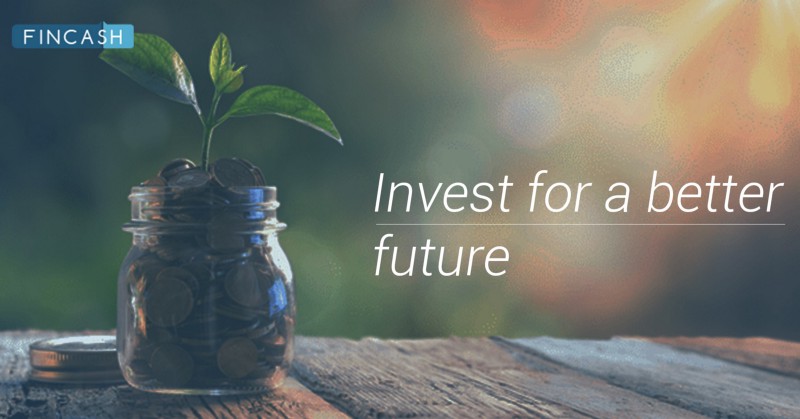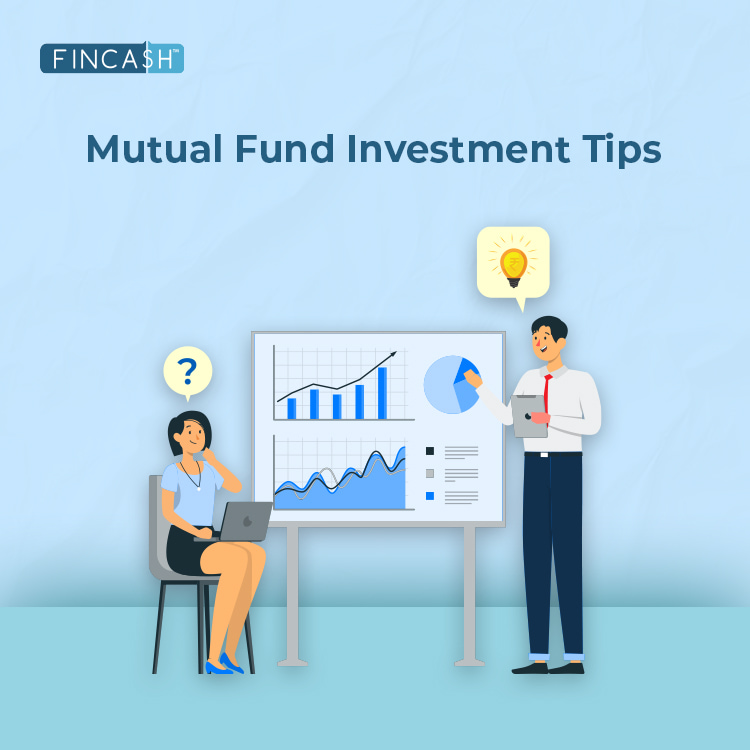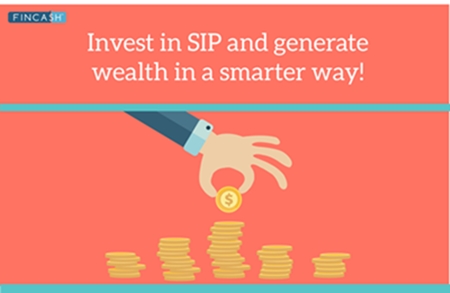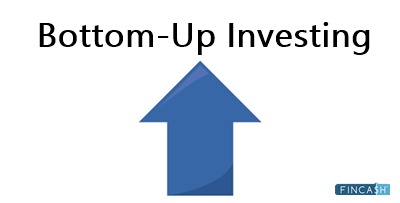
Table of Contents
Basics of Investing
Investing means a plan to put your money into an asset or things that you think will increase in value or will have great growth in future. The main idea behind investing is to generate a regular Income or returns in a specific period of time. Many people confuse savings with investments.
Investing is an aggressive way of securing assets or returns, while saving has to do with the liquid money that can be available when required. There are many investing avenues like Stocks, Bonds, Mutual Funds, Fixed Deposits, etc. But, to start investing one has to save first!
Why is Investing Important?
If you want to be financially secured, build wealth, be prepared for an emergency, stay secured during Inflation or meet your Financial goals, then you should- start investing now! It is never too early nor too late to make an investment. One important thing you should practice is to make strong productive use of your Earnings. With time your investment grows and so does your money. For instance, the value of INR 500 will not be same in next 5 years (if invested!) and it may grow to more! Hence, investing is very important for everyone.

Start Investing Early
The best way to have the desired goal of money is to save! Remember, being rich is not how much amount of money you earn, but how much amount of money you save. Only when one saves, one can start investing. One way to get closer to your desired goals is to understand the power of compound interest. Compound interest means interest which is not only calculated on the initial principal but also the accumulated interest on prior.
The equation for Compound Interest is P=C(1+r/n)nt;
*P is future value *C is the individual deposit *r is the interest rate *n is the number of times the interest rate is compounded per year *t is the number of years
To Illustrate-
If you invest
INR 5000monthly with annual interest rate of 5% which is compounding quarterly, then after 5 years your total invested amount INR 3,00,000 will grow toINR 3,56,906.Your total earning would beINR 56,906with average INR 11,381 annually.
Talk to our investment specialist
Types of Investing
The two distinct types of investing are traditional and alternative. Traditional investments are popular amongst investors and are essentially done with instruments such as mutual funds, shares, bonds etc. Whereas, Alternative investing is anything that doesn't fit into the mainstream categories of equity or fixed income. Alternative investments are made in gold, hedge funds etc., which are also expected to yield returns.
Traditional Investing
1. Stocks
Investing in stocks or more commonly known as equity is the most common type of investment. Stocks represents ownership in companies and is considered as the best way to own a business without starting or investing in a company. Investors planning to invest in stocks need to first understand its procedure.
3. Mutual Funds
A Mutual Fund is a collective pool of money with a common objective of purchasing securities. investing in Mutual Funds can be done through equity, debt, and other markets. These are various Types of Mutual Funds that an investor can invest in. For retail investors, investing into mutual funds is one of the easiest ways to take exposure in the securities markets. Some of the famous mutual funds people invest in are:
a. Bonds
A bond is a debt security where an issuer of the bond pays the holder an interest (or more commonly called a "coupon") at regular intervals and pay the principal amount at the maturity date. The bond buyer/holder initially pays the principal amount for buying the bond from the issuer. There are different types of bonds such as Government bonds, Corporate bonds, and Tax saving bonds. Some of the Best Bond Funds to invest are:
Fund NAV Net Assets (Cr) 3 MO (%) 6 MO (%) 1 YR (%) 3 YR (%) 2024 (%) Debt Yield (YTM) Mod. Duration Eff. Maturity Sub Cat. Aditya Birla Sun Life Corporate Bond Fund Growth ₹109.251
↑ 0.02 ₹25,341 1.8 3.9 8.3 6.8 8.5 7.48% 3Y 9M 14D 5Y 8M 19D Corporate Bond ICICI Prudential Long Term Plan Growth ₹35.6982
↓ 0.00 ₹13,540 1.8 3.7 8.1 7.1 8.2 7.72% 3Y 6M 29D 5Y 8M 8D Dynamic Bond HDFC Corporate Bond Fund Growth ₹31.4708
↑ 0.00 ₹32,421 1.7 3.8 8.3 6.6 8.6 7.51% 3Y 10M 11D 5Y 11M 28D Corporate Bond UTI Dynamic Bond Fund Growth ₹29.9318
↑ 0.00 ₹534 1.5 3.2 7.4 8.7 8.6 7.09% 6Y 5M 5D 14Y 7M 13D Dynamic Bond ICICI Prudential Corporate Bond Fund Growth ₹28.8481
↑ 0.00 ₹29,134 1.8 3.7 8 7 8 7.65% 2Y 4M 10D 3Y 10M 2D Corporate Bond Note: Returns up to 1 year are on absolute basis & more than 1 year are on CAGR basis. as on 25 Feb 25
b. Equity Funds
An equity fund invests mainly in stocks/shares. Equity represents ownership in firms (publicly or privately traded) and the aim of the stock ownership is to participate in the growth of the business over a period of time. Moreover, buying an Equity Fund is one of the best ways to own a business (in a small proportion) without starting or investing in a company directly. These funds are a good option to gain returns over the long-run, but one should also know that these are risky funds. There are various types of Equity Funds such as Large cap funds, mid cap funds, Diversified Equity Funds, focused fund, etc to name a few. Some of the Best equity funds to invest are as follows:
Fund NAV Net Assets (Cr) 3 MO (%) 6 MO (%) 1 YR (%) 3 YR (%) 5 YR (%) 2024 (%) Sub Cat. DSP BlackRock Natural Resources and New Energy Fund Growth ₹79.563
↓ -1.18 ₹1,190 -10.9 -16.3 -1.8 15.1 22.5 13.9 Sectoral DSP BlackRock Equity Opportunities Fund Growth ₹548.632
↓ -2.48 ₹13,444 -9.6 -11.7 7.4 18.2 18.3 23.9 Large & Mid Cap DSP BlackRock US Flexible Equity Fund Growth ₹58.6073
↓ -0.29 ₹920 4 6.5 13.3 14 16.3 17.8 Global L&T Emerging Businesses Fund Growth ₹70.229
↓ -0.52 ₹17,386 -18.3 -19.3 -2.7 18.2 25.2 28.5 Small Cap L&T India Value Fund Growth ₹94.0333
↓ -0.20 ₹12,849 -12.4 -13.4 1.4 19.7 20.8 25.9 Value Note: Returns up to 1 year are on absolute basis & more than 1 year are on CAGR basis. as on 25 Feb 25
c. Hybrid Funds
Hybrid Funds are also commonly known as Balanced Fund. These funds invest in both equity and debt mutual fund. In other words, this fund acts as a combination of both debt and equity. These funds are a great option for the investors who fear of investing in Equity Funds. This fund will reduce the risk portion and also help in gaining optimal returns over the time. Some of the best performing hybrid funds to invest are:
Fund NAV Net Assets (Cr) 3 MO (%) 6 MO (%) 1 YR (%) 3 YR (%) 5 YR (%) 2024 (%) Sub Cat. Aditya Birla Sun Life Regular Savings Fund Growth ₹63.2322
↑ 0.01 ₹1,387 -0.8 1.2 8.3 7.5 9.5 10.5 Hybrid Debt Aditya Birla Sun Life Equity Hybrid 95 Fund Growth ₹1,370.47
↓ -0.43 ₹7,313 -7.2 -8.1 4.8 8.8 13 15.3 Hybrid Equity SBI Debt Hybrid Fund Growth ₹68.4612
↑ 0.04 ₹9,761 -1.7 -1.1 6.8 9.1 10.2 11 Hybrid Debt ICICI Prudential MIP 25 Growth ₹71.65
↑ 0.02 ₹3,144 -0.1 0.5 8.4 9.1 9.3 11.4 Hybrid Debt Principal Hybrid Equity Fund Growth ₹146.326
↓ -0.22 ₹5,436 -7.2 -8.1 3.8 10.9 13.5 17.1 Hybrid Equity Note: Returns up to 1 year are on absolute basis & more than 1 year are on CAGR basis. as on 25 Feb 25
4. Fixed Deposits
Fixed deposit (FD) is the oldest method of investing. A fixed amount is saved with a financial body for fixed amount of time, this allows the investor to earn an interest on the money. The reason to invest in FD is to earn a higher rate of interest than in a Savings Account. check out fixed deposits rates
Alternative Investing
1. Real Estate
Investing in real estate has become popular amongst investors over last few decades. Real estate investments typically mean buying, leasing or selling of property for profits or stable income. Most investors take a Bank loan to invest in real estate.
2. Private Equity/ Venture Capital
It is an investment made in unlisted companies. These companies can be start-ups to mid-size to large-size. Also, the firms can either be of specific sectors or on a broad spectrum.
3. Derivatives
A derivative is a financial contract given to the buyer in means of a commitment to purchase an asset at a fixed price in future. The most common types of derivatives are futures, options, swaps, and forwards. Futures contracts are based the Underlying such as bonds, stocks, foreign currencies etc.
4. Structured Products
A structured product is a fixed term investment linked to the performance of the stock Market or other indices. The returns in the structured products are linked to an Underlying Asset with pre-defined features like maturity date, Capital protection level, coupon date etc.
5. Hedge Funds
A hedge fund is a group of investors who pool huge funds in order to invest it in complicated investment for generating higher returns. Hedge funds allow using aggressive strategies that are unavailable to mutual funds including selling swaps, short, leverages, derivatives, etc.
Other Alternative Investments
Wine, art, and antiquities, commodities, indeed any business value, might also be considered as an alternative investing method.
How to Invest in Mutual Funds Online?
Open Free Investment Account for Lifetime at Fincash.com.
Complete your Registration and KYC Process
Upload Documents (PAN, Aadhaar, etc.). And, You are Ready to Invest!
Planning for investment is not only a one-time process but is an ongoing process. Before jumping into anything, set and prioritise your goals and dreams. invest early, Invest Now!
All efforts have been made to ensure the information provided here is accurate. However, no guarantees are made regarding correctness of data. Please verify with scheme information document before making any investment.












